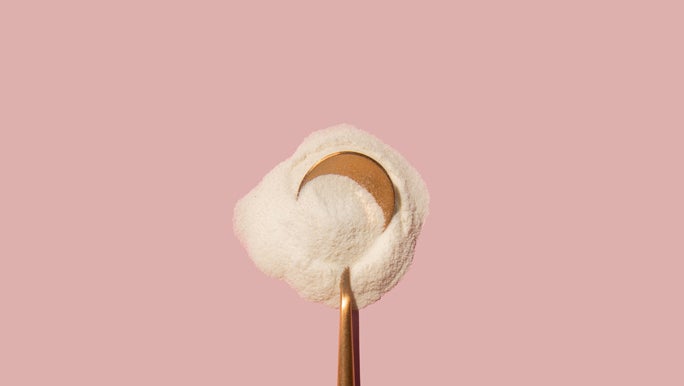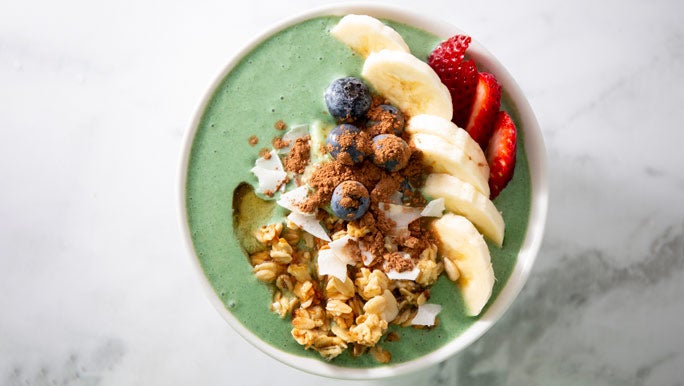The benefits of collagen powder for skin

Collagen is a naturally abundant protein in the body that provides structural support in connective tissue, muscle, and skin.
It accounts for around 30% of the whole-body protein content. It plays an important role in skin elasticity, joint, and bone health.
The human body naturally creates collagen, and like most things, the production declines with advancing age.
When it comes to skin, this is one of the key reasons why wrinkles form. Skin elasticity is reduced, and the skin loses the ability to bounce back into place.

Collagen powder and supplements are mostly made from marine or bovine sources and are in a hydrolysed form.
What are the different types of collagen?
There have been almost 28 different types of collagen identified, but 80 - 90 percent of collagen belong to types I, II and III. Each have their own structure and function:
- type I - is the most common in skin, bone, teeth, tendon, ligaments
- type II - found in the cartilage in our joints
- type III - is in the skin, muscle, and blood vessels
No matter the type, the various collagens and the structures they form all serve the same purpose, to help tissues withstand stretching.
The benefits of collagen powders & supplements
Collagen powders and supplements have been gaining in popularity, and with a number of different forms, made from different sources, it can be hard to know what’s what.
Let’s break it down.
Collagen supplements are mostly made from marine or bovine sources and are in a hydrolysed form.
Being a protein made up of 19 amino acids, collagen is not easily absorbed in its whole form. Hydrolyzed collagen is essentially broken down into smaller particles to make it more easily absorbed.
Collagen and skin health
We start to lose collagen in the body anywhere from 18–29 years of age. Once we hit our 40s we can lose around 1% per year.
Now, let’s not forget ageing is a natural process. And when it comes to the skin there is a reduction in collagen.
Supplementing with hydrolysed collagen is thought to slow down the effects of ageing by reaching the deeper layers of the skin.
It may help to:
- improve skin physiology and appearance
- increase skin hydration
- improve skin elasticity, firmness and wrinkle reduction
- support skin rejuvenation
Collagen for healthy joints and bones
Supporting healthy joints and reducing the symptoms of mild osteoarthritis including joint pain, is another reason why you may think about taking a collagen supplement.
Hydrolysed collagen may protect cartilage and activate the growth of new cartilage by stimulating cells helping to ease joint discomfort and increasing joint mobility.
Collagen may also help to increase mineral bone density and play a supportive role for bone health, particularly as we age.
You can also get collagen from food

Spirulina is a food source of collagen.
Supplements are not the only way to up your collagen intake. Collagen rich foods include:
- Meat sources (meat that contains muscle or connective tissue)
- Bone broth
- Fish
- Egg whites
- Spirulina
Related: